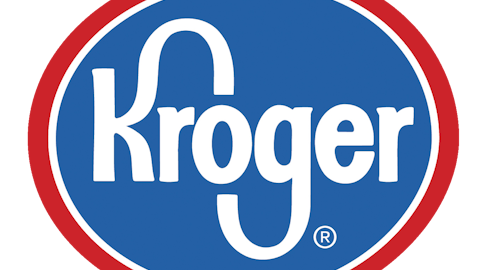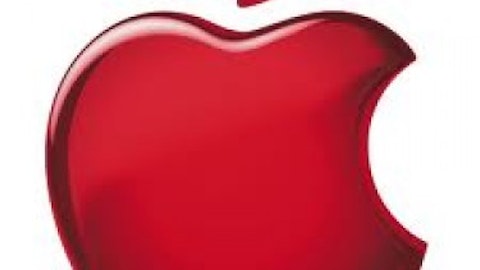Peter Lynch always said to buy what you know. Well I know that whenever I need household furnishings such as sheets and towels, I still go to Bed Bath & Beyond Inc. (NASDAQ:BBBY). The large big-box retailers Target Corporation (NYSE:TGT) and Wal-Mart Stores, Inc. (NYSE:WMT) sell the same items, but Bed Bath & Beyond is the first place I think of going. The store is very organized and consumers generally know what they’re looking for when they go there. It’s the shopping experience that has kept consumers coming back to Bed Bath & Beyond.
Tough to argue with success
One of the things that impresses me the most about Bed Bath & Beyond Inc. (NASDAQ:BBBY) is how well the company navigated the housing downturn. Now that housing has bottomed and is rebounding strongly, the retailer looks set for further gains as new items are bought for the home. To reach its customers, the company operates 1,006 Bed Bath & Beyond stores, 264 World Market stores, 83 Buy Buy Baby stores, 74 stores under the names Christmas Tree Shops or andThat!, and 47 stores under the Harmon or Harmon Face Values.
In the latest quarter, earnings increased 14% to $1.68 per share. This capped a 12% rise for the full year to $4.56 per share. Net sales for the quarter rose 24.5% to $3.4 billion due to the integration of the World Market and Linen Holdings acquisitions. Comparable-store sales increased 2.5% after rising 6.8% in the prior year’s quarter.
I really like the fact that Bed Bath & Beyond Inc. (NASDAQ:BBBY) has no debt and $1.0 billion in cash. The company funds all operations without the use of any debt financing. Operating cash flow last year was $1.2 billion. The company is also using existing cash to fund its $2.5 billion share-repurchase program, which will be completed by the end of the 2015 fiscal year.
In looking forward, there are several ways for Bed Bath & Beyond Inc. (NASDAQ:BBBY) to sustain growth. The company sees the potential for an additional 300 Bed Bath & Beyond stores in the United States and Canada. There is also the ability to take its smaller store concepts coast to coast. World Market, Buy Buy Baby, Christmas Tree Shops, andThat!, and Harmon stores have considerable room to grow. In Mexico, there are only three Bed Bath & Beyond stores, with an additional pair to be opened this year. There’s considerable opportunity for growth south of the border.
The company is also undertaking several initiatives to boost online sales. New sites will be launched by the end of the second quarter for Buy Buy Baby and Bed Bath & Beyond Inc. (NASDAQ:BBBY). The company just opened a new Internet-fulfillment center in Georgia to handle the growing web orders. The company also built a new data center in North Carolina to handle all of its IT needs. These are all great moves by management as more shopping continues to occur online.
The competition
Both Target and Wal-Mart are serious competitors to Bed Bath & Beyond Inc. (NASDAQ:BBBY). Both are big-box retailers that know their customers and sell all kinds of general merchandise. Target Corporation (NYSE:TGT)’s customers tend to have a slightly higher income than Wal-Mart’s. Wal-Mart Stores, Inc. (NYSE:WMT)’s focus is on offering the lowest price possible, whereas Target focuses on providing a better shopping experience with its store design.
Target has considerable opportunity for expansion. The company just opened 24 stores in Canada, which are the first stores for the retailer outside of the U.S. This year Target plans to have a total of 124 stores in Canada. Target also is looking to start selling groceries in its stores. Even though groceries have low margins, they get customers into the stores more often, which hopefully leads them to purchasing higher-margin items as well.
Target is also seeing increased sales of its REDcard. Each debit or credit card offers the user 5% off all purchases at Target when the REDcard is used. Users of the card also get free shipping on all goods purchased online. Target has already seen the results of this initiative with 17% of all sales in the first quarter conducted using the REDcard compared to 12% in the prior year’s quarter.
The potential for Wal-Mart is in continued international expansion and it is ahead of its competition in that regard. In terms of Wal-Mart’s $470 billion in sales, the company gets 29% of its sales internationally. The company already has a strong presence in Mexico and in the last two years expanded into the United Kingdom and Africa. The company still has only a small presence in China with 394 stores and only 20 stores in India. Wal-Mart has no presence in Russia or Indonesia.
Wal-Mart also has considerable opportunities in the e-commerce segment. Even though the company has stumbled in the past with its online initiatives, things are starting to turn around in that department. In the first quarter of this year, online sales grew 30% compared to last year. Online sales have been picking up overseas as well with online sales in the U.K. And Brazil growing as well. Consider that online sales represent only $8 billion of Wal-Mart’s total sales and you can see the potential for growth for the company.
Foolish assessment
Bed Bath & Beyond Inc. (NASDAQ:BBBY) is still the place to shop for home furnishings. The company has carved out a niche and has a steady customer base. Target and Wal-Mart offer a little bit of everything and have room to grow online and internationally. Even though I like Bed Bath & Beyond for its core business, all three companies are worthwhile investments in the long term.
Mark Yagalla has no position in any stocks mentioned. The Motley Fool recommends Bed Bath & Beyond. Mark is a member of The Motley Fool Blog Network — entries represent the personal opinion of the blogger and are not formally edited.
The article This Home-Furnishing Retailer Is Still the Place to Shop originally appeared on Fool.com and is written by Mark Yagalla.
Copyright © 1995 – 2013 The Motley Fool, LLC. All rights reserved. The Motley Fool has a disclosure policy.






